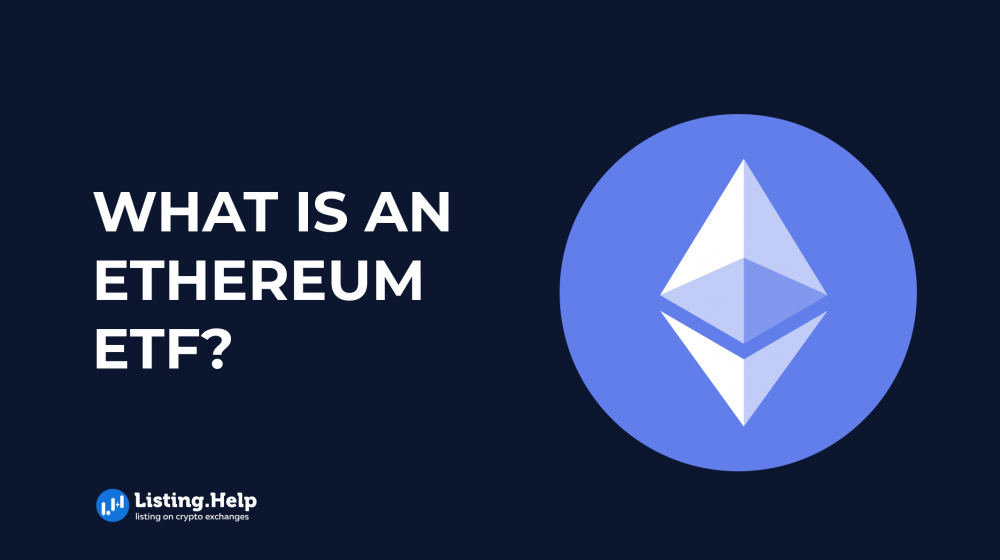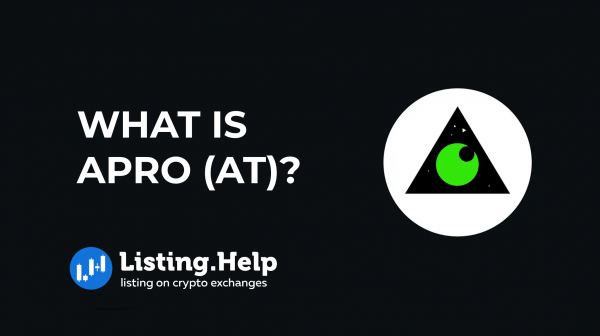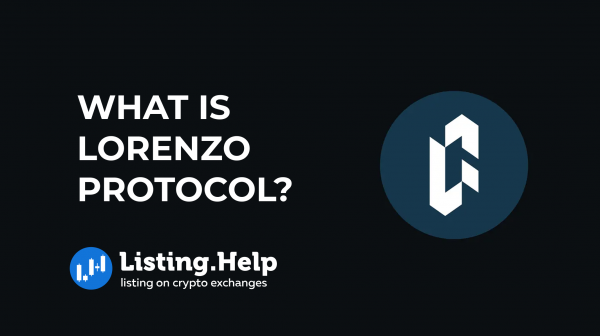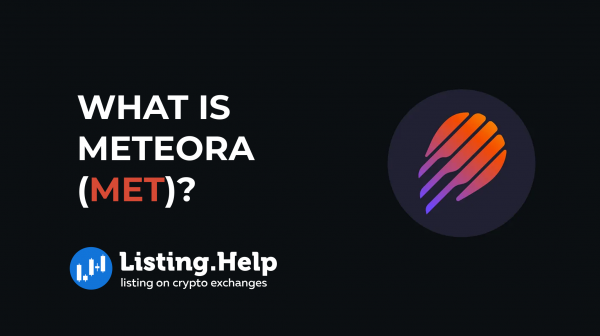What is an Ethereum ETF, and How Does It Work?
 March 13, 2024
March 13, 2024 Updated: January 27 2025, 07:18
Updated: January 27 2025, 07:18
LEAVE A REQUEST
Launching your own token project? Our experts are ready to help with listing on exchanges, market making, marketing and other solutions
SUBMIT APPLICATIONEthereum exchange-traded funds (ETFs) offer a streamlined way to invest in Ethereum’s value without the need to own the cryptocurrency directly. This piece explores the growing importance of Ethereum ETFs and what their potential approval in the US could mean for the market.
Ethereum stands as a leading cryptocurrency, trailing only behind Bitcoin in market capitalization and user base. Unlike Bitcoin, often compared to digital gold, Ethereum introduces a dynamic twist with its smart contract functionality, paving the way for a diverse range of decentralized applications. This capability has piqued interest in Ethereum ETFs, with market watchers eagerly anticipating developments.
Following the SEC’s green light for the first Bitcoin ETF, there’s optimism surrounding the approval of Ethereum ETFs. Numerous proposals are in the pipeline, including the notable transition of Grayscale Ethereum Trust into an ETF. The sanctioning of ETH ETFs could significantly drive Ethereum’s wider acceptance, elevate its market value, and draw institutional investors looking to diversify with this cutting-edge asset category.
What Are Ethereum ETFs?
The intrigue surrounding Ethereum ETFs is gaining momentum globally. Such funds reflect Ethereum’s market price but are bought and sold on traditional financial exchanges. This setup allows investors to participate in Ethereum’s price movements without the direct purchase of the cryptocurrency, offering a simplified approach for those less familiar with the crypto space. It’s an appealing option for individuals looking to tap into Ethereum’s potential while sticking to the traditional investment platforms they are accustomed to.
Advantages of Ethereum ETFs
Accessibility: Traditional investors, previously wary of crypto’s complexities, could easily access Ethereum via familiar brokerage accounts. They could trade these ETFs like regular stocks, eliminating the need for understanding crypto wallets or complex digital exchanges.
Credibility Enhancement: The introduction of Ethereum ETFs on mainstream exchanges could validate and elevate the crypto market’s standing, creating a bridge between conventional finance and the emerging digital asset space.
Enhanced Liquidity: With more institutional and individual investors participating through ETFs, Ethereum’s market liquidity could see a substantial increase. This would lead to more stable and efficient market transactions, benefiting everyone from small traders to large investment entities.
Security Improvement: By investing in ETFs, individuals avoid the risks associated with managing personal crypto wallets, reducing exposure to potential hacks. Furthermore, the regulatory framework governing ETFs adds an extra layer of security and transparency, which is sometimes lacking in direct cryptocurrency investments.
How Does an Ethereum ETF Work?
An Ether ETF offers investors a method to track Ethereum’s market behavior without the necessity of directly acquiring and storing the digital asset. This method is facilitated by the ETF’s investment in Ethereum or related assets on behalf of its shareholders.
A fund manager initiates an Ether ETF, aimed at reflecting Ethereum’s market value. Investors have the option to trade shares of this fund on conventional stock exchanges, similar to their dealings with traditional stocks. This method tends to be more straightforward and recognizable than engaging with cryptocurrency exchange platforms.
The worth of an Ether ETF is closely connected to Ethereum’s market price. If there’s an increase or decrease in Ethereum’s valuation, the ETF’s worth is anticipated to adjust in a corresponding manner. This arrangement allows investors to speculate on the digital currency’s market trends without possessing the asset itself.
Types of Ethereum ETFs
Ethereum ETFs fall into two main types:
– those based on Ethereum’s current market price (Spot ETFs)
– those based on futures contracts (Futures ETFs).
Spot Ethereum ETFs function somewhat like large-scale digital wallets, as they hold actual Ethereum tokens. The value of these ETFs is a reflection of Ethereum’s market price at any given moment. When a fund manager establishes a Spot Ethereum ETF, they’re buying tokens, and the ETF’s worth will rise or fall in alignment with Ethereum’s market price. For instance, if the price goes up by 10%, the ETF’s value is expected to increase correspondingly, after deducting any applicable fees or costs.
On the other hand, Ethereum Futures ETFs don’t hold Ethereum directly. Instead, they invest in futures contracts, which are essentially bets on where Ethereum’s price will be at a future date. For example, a Futures Ethereum ETF might invest in contracts traded on a financial exchange, aiming to gain from price changes without actually holding the cryptocurrency. The performance of these futures contracts determines the ETF’s value, offering a different approach to investing in Ethereum.
The Difference between the digital asset ETH and an Ethereum ETF
– When someone invests in ETH, they possess the cryptocurrency in their digital wallet, having direct control over it. On the other hand, investors in an Ethereum ETF own shares in a fund, not the cryptocurrency itself. The fund might hold actual ETH or derivatives linked to its price.
– Ethereum ETFs incur management fees, which are typical for any investment fund. In contrast, ETH owners pay transaction fees, often referred to as “gas,” when they make transactions on the Ethereum network.
– Ethereum ETFs are traded during the standard trading hours of stock exchanges, from Monday to Friday. This contrasts with ETH, which can be traded around the clock, every day of the year, in the cryptocurrency markets.
In the U.S., currently, the only Ethereum ETFs available are those based on futures. These products provide exposure to ETH futures contracts rather than the cryptocurrency itself and started appearing on U.S. exchanges in October 2023.
Several firms, including Grayscale Investments, are working towards launching spot Ethereum ETFs, aiming to broaden the cryptocurrency’s mainstream acceptance. However, the SEC has yet to approve any spot Ethereum ETFs up to this point.
When to Expect the Approval of the Ethereum ETF?
The SEC has delayed its verdict on BlackRock’s proposal for an Ethereum ETF again, marking the second deferment for the iShares Ethereum ETF, with the first occurring in January after Bitcoin ETFs received approval. The SEC is permitted up to three delays before it must reach a conclusive decision.
Jake Chervinsky, a legal authority at Variant, a cryptocurrency firm, expresses skepticism about the approval of an ETH ETF this year. He anticipates that, akin to the situation with Bitcoin ETFs — which likely wouldn’t have materialized without the Columbia Court’s intervention — a court mandate might be necessary to push the SEC towards approval for Ethereum ETFs.
Chervinsky also suggests that the eventual approval of Ethereum ETFs is a matter of “when” rather than “if.” The critical date to watch is May 23rd, tied to VanEck’s Ethereum ETF application. James Seyffart, an ETF analyst from Bloomberg, highlights this date as pivotal, considering any prior decisions are likely to be mere postponements. He argues that it would be unlikely for the SEC to deny VanEck’s application only to approve similar applications from competitors later.
The SEC is also initiating a public consultation to gauge whether Ethereum ETFs should be greenlit, with a keen eye on risks like fraud and manipulation, especially concerning Ethereum’s Proof-of-Stake protocol.
Notably, these ETF applications hinge on the classification of Ethereum as a “commodity,” as indicated in a recent SEC statement, which referenced a Nasdaq application for listing the iShares Ethereum Trust as Nasdaq Commodity-Based Trust Shares. However, SEC Chairman Gary Gensler has consistently refrained from labeling Ethereum as a “commodity,” emphasizing that the Commission’s prior approval for Bitcoin-backed ETFs, categorized as “commodities,” does not imply a readiness to sanction ETFs for other crypto assets, potentially including Ethereum, that might be considered “securities.”

For more insights and updates on blockchain and cryptocurrency, visit our blog at https://listing.help/blog/.







 February 23, 2026
February 23, 2026 








